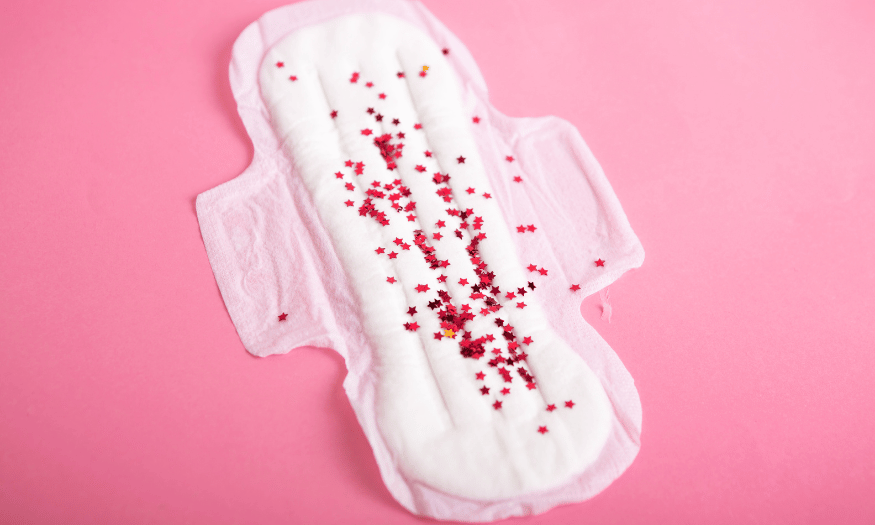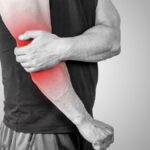Exercising while on your menstruation AKA period can be challenging, but it’s important to keep in mind that it’s totally normal and safe to continue with your regular workout routine. However, there are a few things to consider to make your gym session as comfortable and effective as possible.
Comfort 🙆♀️
During your period, you may experience cramping and discomfort. Wear comfortable, breathable clothing, and bring a heating pad or hot water bottle to the gym to help alleviate cramps. Consider taking an over-the-counter pain reliever before your workout.
Hydration 🥤
Staying hydrated is essential during your period, as you may lose more fluids than usual. During your period, your body loses fluids through menstrual blood loss and increased urination. This can lead to dehydration, which can cause fatigue, headaches, and muscle cramps, among other symptoms.
To stay hydrated during your period, it’s essential to drink plenty of water before, during, and after your workout. Aim to drink 1 liter and half of water per day. You can also include other hydrating fluids such as herbal tea, coconut water, or fresh fruit juice.

It’s also essential to monitor your urine color. If it’s light yellow or clear, it means you’re hydrated. If it’s dark yellow, it means you need to drink more water.
During your workout, it’s also important to keep water handy, so you can take a sip as needed. This will help to keep you hydrated and feeling refreshed throughout your workout.
It is good to remember that if you’re sweating a lot during your workout, you may need to drink a bit more water than usual to replace the fluids you’re losing energy levels
Some women may experience fatigue and low energy levels during periods due to hormonal changes and physical discomfort. Always listen to your body and adjust your workout routine accordingly. If you’re feeling tired, it’s better to do a lower-intensity workout or take a rest day.
Low-intensity exercises such as yoga, swimming, or cycling can be great options for days when you’re feeling tired. These exercises allow you to move your body without putting too much stress on it. They also promote relaxation and help ease cramps and bloating.
You can also consider doing bodyweight exercises, such as push-ups, squats, and lunges, which can be done at home and don’t require equipment. This way, you can still work out and stay active without putting too much stress on your body.
If you’re feeling particularly fatigued and experiencing cramps, taking a rest day is okay. Sometimes, your body needs a break to recover and recharge. Skipping a workout or two during your period is not going to set you back in your fitness progress, and it’s better to take a break when your body needs it rather than pushing through and risking injury or burnout.
It’s also essential to ensure you get enough sleep and eat a balanced diet to support your body during this time. Proper nutrition and rest will help to keep your energy levels up and help you to feel better during your period.
To sum it up, some women may experience fatigue and low energy levels during their period, so be aware of listening to your body and adjust your workout routine accordingly. If you’re tired, consider doing a lower-intensity workout or taking a rest day.
Nutrition 🥙
Nutrition is crucial in supporting overall health and achieving your fitness goals, especially during your period. A balanced diet is essential to keep your energy levels up and to provide your body with the nutrients it needs to support your workouts.
During your period, focus on nutrient-dense foods that give your body the energy and nutrients it needs. This includes eating plenty of vegetables and fruits, which are wealthy in vitamins, minerals, and antioxidants that help to support overall health. Fruits and vegetables are also excellent sources of dietary fiber, which can help to regulate your blood sugar levels and keep you feeling full and satisfied.
In addition to fruits and vegetables, it’s also important to include lean protein in your diet. Protein is essential for muscle repair, and growth and can help keep you feeling full and delighted. Good sources of lean protein include chicken, fish, turkey, lean beef, eggs, and plant-based options like beans, lentils, and tofu.
It’s also important to pay attention to hydration during your period. Drinking enough water is essential for overall health, and it can also help to support your workouts by keeping your body hydrated and your muscles functioning properly. Aim to drink at least 7-9 cups of water per day.
Protection ⚔
If you’re experiencing heavy bleeding during your period, taking extra precautions is essential to ensure that your workout is comfortable and safe. One of the most important things to consider is bringing extra protection to the gym, such as tampons or pads. This will ensure that you’re prepared for any unexpected bleeding and stay comfortable and focused during your workout.
Another important consideration is to wear dark-colored workout clothing. This will help to avoid any accidental leaks that may occur during your workout. Bring spare workout clothes if you need to change during your training.
It’s also important to listen to your body during your period. Some women may experience cramping, bloating, or fatigue during their period, which can affect their ability to exercise. If you’re experiencing discomfort or pain, it’s important to take it easy and adjust your workout accordingly. You can choose to do a low-impact workout like yoga or swimming or take a rest day if needed.
It’s also essential to ensure enough rest and sleep during your period. Your body requires more energy during this time, and a lack of sleep or rest can lead to fatigue and make it harder to exercise.
Our advice, if you’re experiencing heavy bleeding during your period, keep in mind to take extra precautions to ensure that your workout is comfortable and safe. Bring additional protection, wear dark-colored workout clothing, listen to your body, and get enough rest and sleep.
Sanitary ✨
Sanitary measures are important to maintain the hygiene and cleanliness of the gym, and to prevent the spread of germs and bacteria. One way to do this is to bring your own towel to the gym and wipe down any equipment you use. This is especially important for cardio equipment such as treadmills and bikes, which can be a breeding ground for germs and bacteria. By using your own towel, you can ensure that the equipment you are using is clean and free from any germs or bacteria that may be present on the equipment. This can help to prevent the spread of illness and keep you and other gym-goers healthy. When wiping down equipment, make sure to use a disinfectant or cleaning solution that is appropriate for the type of equipment you are using. Many gyms provide wipes or spray bottles for this purpose, but you can also bring your own. It’s also important to be mindful of personal hygiene and practice good hand hygiene. Wash your hands before and after your workout, and avoid touching your face or other body parts while you are at the gym.
It’s important to remember that every woman’s menstrual cycle AKA monthly period is different, and what works for one person may not work for another. It’s important to listen to your body and make adjustments as needed. If you have any concerns or experience any unusual symptoms, be sure to speak with your healthcare provider.
Which exercise and workout should be avoided during periods?
Avoid high-intensity exercises such as running, jogging, and intense cardio during your period. Additionally, it is best to avoid exercises for a prolonged time and inversion poses with yoga. Finally, it is important to listen to your body and don’t force your body to exercise if you don’t feel up to it.
Is it ok to do squat during my period?
Yes, it is ok to do squats during periods. However, it is important to listen to your body and adjust the intensity of your workout accordingly. Squats are a great way to target your quadriceps, glutes, and core, and can help to reduce PMS symptoms and endorphin release can help to reduce pain associated with periods. It is also important to stay hydrated and switch up your workouts to avoid straining your body too much.
References:






very helpful and useful information thanks gyming
https://giphy.com/embed/3oKIPdvh8ODxvgZ0Jy